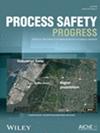Exploring the effects of automation malfunction on team communication and coordination in ships' engine rooms
IF 1
4区 工程技术
Q4 ENGINEERING, CHEMICAL
引用次数: 0
Abstract
Automation malfunctions within complex socio-technical systems reserve the potential to significantly affect human performance. In the context of maritime operations, varying consequences of automation malfunction on human performance can be observed. This study introduced a two-step research framework to examine the repercussions of such malfunctions, particularly those related to communication and coordination among human teams in ship engine rooms. Initially, a qualitative semi-structured interview was conducted with seven professional marine engineers to explore the potential impact of hypothetical automation malfunction on team communication. Subsequently, a quantitative survey involving 32 professional marine engineers employed coordination demand analysis (CDA) to scrutinize changes in team coordination resulting from malfunction. The findings indicate that an automation malfunction within an engine room can precipitate an abrupt overload of the socio-technical system. This can significantly increase communication frequency among engineers, particularly in relation to the physical and organizational aspects of the environment. Furthermore, the study highlights the influence of disparate levels of expertise among team members on coordination demands. A positive correlation was discovered between differences in expertise and increased coordination demands within a team. These insights underscore the necessity for future research on human–automation interaction, specifically focusing on individual differences and nontechnical skills.探索自动化故障对轮机舱团队沟通和协调的影响
在复杂的社会技术系统中,自动化故障有可能严重影响人类的工作表现。在海上作业中,可以观察到自动化故障对人类表现造成的不同后果。本研究采用了一个两步研究框架来考察此类故障的影响,尤其是与轮机舱中人类团队之间的沟通和协调有关的故障。首先,对七名专业轮机工程师进行了半结构式定性访谈,以探讨假设的自动化故障对团队沟通的潜在影响。随后,采用协调需求分析法(CDA)对 32 名专业轮机工程师进行了定量调查,以仔细研究故障导致的团队协调变化。调查结果表明,轮机舱内的自动化故障会导致社会技术系统突然超载。这会大大增加工程师之间的沟通频率,尤其是在环境的物理和组织方面。此外,研究还强调了团队成员专业知识水平的差异对协调需求的影响。研究发现,专业知识的差异与团队内部协调需求的增加之间存在正相关。这些见解强调了未来对人机互动进行研究的必要性,特别是对个体差异和非技术技能的研究。
本文章由计算机程序翻译,如有差异,请以英文原文为准。
求助全文
约1分钟内获得全文
求助全文
来源期刊

Process Safety Progress
工程技术-工程:化工
CiteScore
2.20
自引率
10.00%
发文量
99
审稿时长
6-12 weeks
期刊介绍:
Process Safety Progress covers process safety for engineering professionals. It addresses such topics as incident investigations/case histories, hazardous chemicals management, hazardous leaks prevention, risk assessment, process hazards evaluation, industrial hygiene, fire and explosion analysis, preventive maintenance, vapor cloud dispersion, and regulatory compliance, training, education, and other areas in process safety and loss prevention, including emerging concerns like plant and/or process security. Papers from the annual Loss Prevention Symposium and other AIChE safety conferences are automatically considered for publication, but unsolicited papers, particularly those addressing process safety issues in emerging technologies and industries are encouraged and evaluated equally.
 求助内容:
求助内容: 应助结果提醒方式:
应助结果提醒方式:


